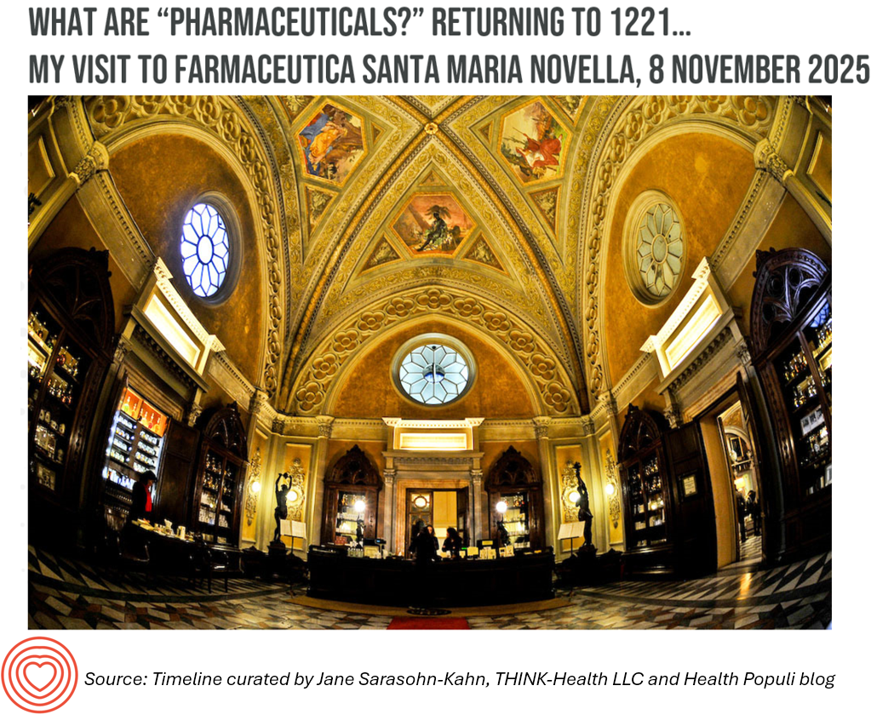Latest Stories – Pain News Network – Read More
By Pat Anson
The Trump Administration is advising doctors and patients not to use acetaminophen (Tylenol) during pregnancy due the risk of babies developing autism. About two-thirds of expectant mothers in the United States use acetaminophen.
Speaking at the White House, President Trump and Health and Human Services Secretary Robert F. Kennedy also linked childhood immunization shots to rising rates of autism, which now affects about 1 in 31 American children.
In a rambling statement, Trump seemed to confuse acetaminophen with vaccines.
“He goes and has a shot. You shouldn’t give a Tylenol to that child,” the president said. “All pregnant women should talk to their doctors for more information about limiting the use of this medication while pregnant. So ideally, you don’t take it at all, but if you have to, you can tough it out.
“And I will say there are parts of the world that don’t take Tylenol. I mean, there’s a rumor. And I don’t know it’s so or not, that Cuba, they don’t have Tylenol because they don’t have the money for Tylenol and they have virtually no autism.”
Cuba does in fact have autism, although at lower rates than the U.S. It also has limited supplies of acetaminophen, which is known as paracetamol outside the U.S.
Paracetamol is one of the most widely used over-the-counter pain relievers in the world. Medical professionals generally consider it one of the safest ways to relieve pain and fever. High fevers during pregnancy have been associated with birth defects, while poorly treated pain can lead to depression, insomnia and other harms to pregnant women.
The FDA warns expectant mothers not to take other over-the-counter pain relievers, such as aspirin and ibuprofen, because they can damage the kidneys of unborn babies.
The UK’s National Health Service (NHS) maintains that it is safe for pregnant women to use paracetamol. “Paracetamol is the first choice of painkiller if you’re pregnant or breastfeeding. It’s been taken by many pregnant and breastfeeding women with no harmful effects in the mother or baby,” the NHS says on its website.
Kenvue, the maker of Tylenol, also disputes any link between acetaminophen and autism.
“We believe independent, sound science clearly shows that taking acetaminophen does not cause autism. We strongly disagree with any suggestion otherwise and are deeply concerned with the health risk this poses for expecting mothers,” the company said in a statement.
In recent years, a handful of studies have linked the use of acetaminophen by pregnant women to autism, Attention-Deficit Hyperactivity Disorder (ADHD), and hyperactivity in children, although the evidence is not conclusive. A large 2021 study in Europe found that women who took acetaminophen while pregnant were 19% more likely to have children with autism.
“Today, the FDA will issue a physicians’ notice about the risk of acetaminophen during pregnancy and begin the process to initiate a (warning) label change. HHS will launch a nationwide public service campaign to inform families and protect public health,” Kennedy said.
“HHS wants to encourage physicians to exercise their best judgment and the use of acetaminophen for fevers and pain in pregnancy by prescribing the lowest effective dose for the shortest necessary duration and only when treatment is required.”
The FDA’s current warning label for acetaminophen cautions people about the risk of liver damage and other side effects, but does not specifically warn pregnant women about using the pain reliever. The agency said in 2015 that the evidence was “too limited” to justify such a warning.
“The announcement on autism was the saddest display of a lack of evidence, rumors, recycling old myths, lousy advice, outright lies and dangerous advice I have ever witnessed by anyone in authority in the world claiming to know anything about science,” Arthur Caplan, PhD, founding head of the Division of Medical Ethics at NYU’s Grossman School of Medicine told The New York Times.
One of the reasons autism rates have risen in the U.S. is that its definition changed. Once considered extremely rare, a task force added Asperger’s syndrome to the list of autism symptoms, which resulted in a surge of new cases. Over the next decade, autism rates surged from 1 in 2,500 children to 1 in 31.
“The rapid rise in autism cases is not because of vaccines or environmental toxins, but rather is the result of changes in the way that autism is defined and assessed — changes that I helped put into place,” Dr. Allen Frances, a psychiatrist who led the task force, wrote in a recent op/ed in The New York Times.
“Our intentions were good, but we underestimated the enormous unintended consequences of adding the new diagnosis. The resulting explosion in cases included many instances of overdiagnosis — children were labeled with a serious condition for challenges that would better be viewed as a variation of normal. It also sowed the seeds of conspiracy theories and anti-vaccine beliefs as people wondered how to explain the rising cases.”
An FDA statement today also cautioned about drawing too many conclusions about links between autism and acetaminophen.
“It is important to note that while an association between acetaminophen and neurological conditions has been described in many studies, a causal relationship has not been established and there are contrary studies in the scientific literature,” the FDA said in a press release.
“It is also noted that acetaminophen is the only over-the-counter drug approved for use to treat fevers during pregnancy, and high fevers in pregnant women can pose a risk to their children. Additionally, aspirin and ibuprofen have well-documented adverse impacts on the fetus.”






